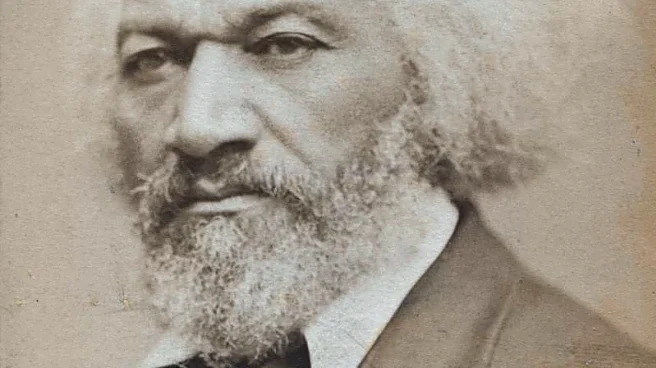What's Happening?
Uber Eats has launched a new chapter in its ongoing advertising campaign, 'Football Is For Food,' featuring actor Bradley Cooper. This campaign builds on a previous Super Bowl 59 ad that humorously suggested football was invented to sell food, a theory originally perpetuated by Matthew McConaughey. The latest installment sees Cooper attempting to debunk this conspiracy theory, offering an entertaining performance as the NFL season kicks off. The campaign also includes appearances by Martha Stewart and Charli XCX, adding to its appeal and humor.
Why It's Important?
The campaign's significance lies in its ability to engage audiences through humor and celebrity endorsements, which can enhance brand visibility and consumer engagement. By leveraging popular cultural references and personalities, Uber Eats aims to strengthen its market position in the competitive food delivery industry. The use of a conspiracy theory as a narrative device not only entertains but also encourages viewers to think critically about advertising and consumer culture. This approach may influence how brands communicate with their audiences, potentially leading to more creative and engaging marketing strategies.
What's Next?
As the NFL season progresses, Uber Eats may continue to expand this campaign, possibly introducing new celebrity figures or plot twists to maintain audience interest. The success of this campaign could inspire other brands to adopt similar strategies, using humor and storytelling to connect with consumers. Additionally, Uber Eats might explore partnerships with other sports leagues or events to further capitalize on the intersection of sports and food culture.
Beyond the Headlines
The campaign highlights the evolving nature of advertising, where brands increasingly rely on storytelling and entertainment to capture consumer attention. This trend reflects broader shifts in marketing strategies, emphasizing the importance of creativity and cultural relevance. The use of celebrities like Bradley Cooper also underscores the role of influencer marketing in shaping consumer perceptions and driving brand loyalty.










